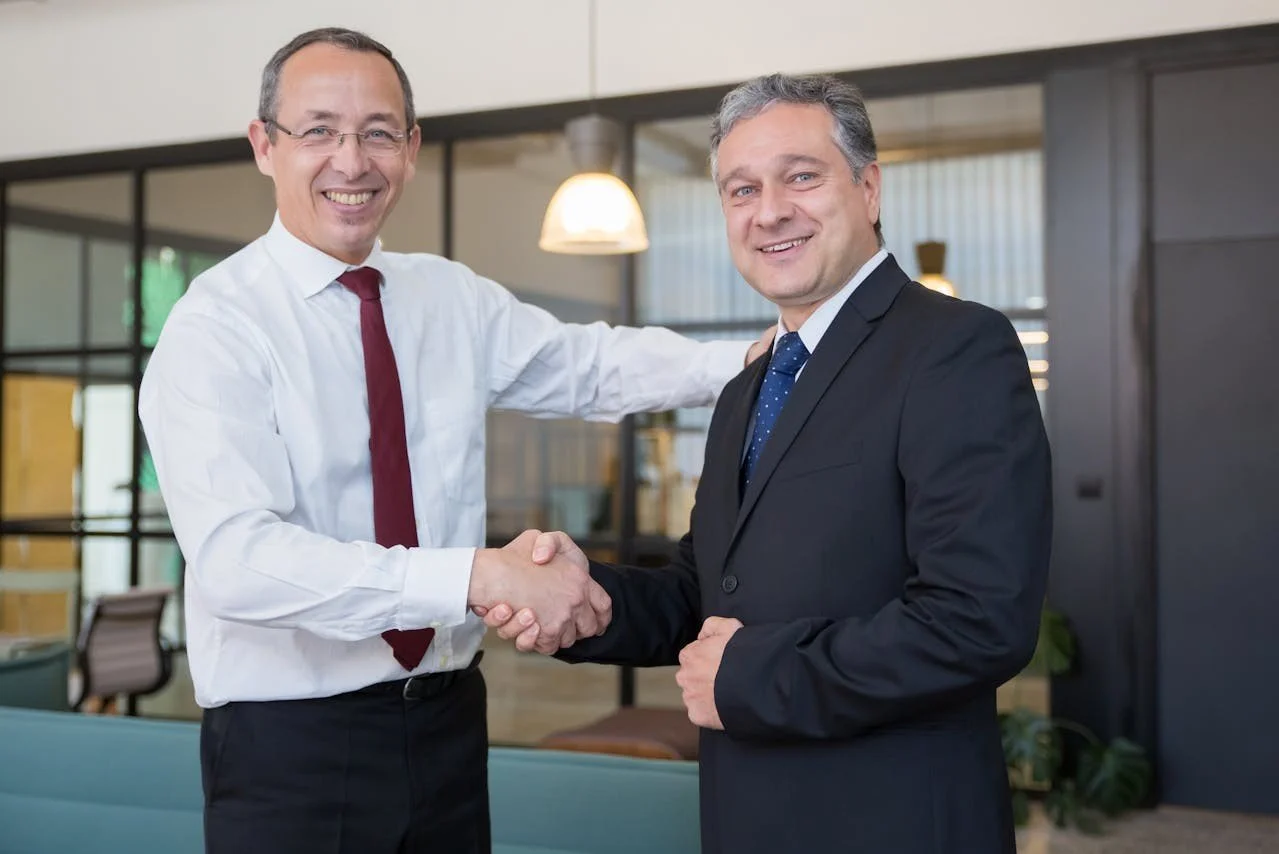The Managing Partner Who Won 12 Cases in a Row—And Still Felt Like a Fraud
I won 12 cases in a row. Made managing partner at 35. Graduated #1 from law school.
And I still felt like a fraud.
If you're a successful lawyer who feels something's missing despite your achievements, I understand—because I've lived that paradox for four decades.
Why Successful Lawyers Hesitate to Seek Coaching
Before I share my story, let me address the elephant in the room. You've already proven you can succeed. You don't need someone to teach you the basics of goal-setting or time management. What you're experiencing isn't a skill deficit—it's the natural consequence of achieving success through patterns that eventually become limiting.
The attorneys who benefit most from my approach aren't struggling with competence. They're grappling with how to sustain excellence while creating authentic meaning. They're not looking to escape the law; they're seeking to practice it from a place of genuine choice rather than compulsion.
This requires someone who understands success at the highest levels—not just theoretically, but experientially.
When Success Becomes Its Own Prison
As that overweight kid with thick glasses who got straight A's, I learned early that excellence was my shield against criticism. Being called names like "Arnold" and "Pugsley" by bullies taught me that perfection was my armor against rejection. This perfectionist drive propelled me to graduate at the top of my high school, college, and law school classes. But what served me academically became a double-edged sword in practice.
After four decades in the legal trenches—from managing a law firm for 30 years to trying high-stakes cases in federal court—I've discovered something that might surprise you: the very qualities that make lawyers successful often become the prison bars that trap them.
Even after winning 12 consecutive cases representing trucking companies, I still doubted myself. I achieved every external marker of success, yet I still felt empty inside. Success wasn't constant, and the setbacks were devastating. I recall a Workers' Compensation retaliation case where I presented what I believed was a compelling case, based on inferences and logical reasoning. The jury ruled in my favor and awarded me every penny I asked for—but then the judge took it all away, saying there wasn't enough evidence to support the verdict. I was crushed and disappointed for my client.
For over three decades as managing partner, I didn't just practice law—I built and led a successful firm. I understand what it's like to be responsible not just for your own cases, but for the livelihoods of partners, associates, and staff. I know the weight of decisions that affect dozens of people and the isolation that comes with leadership.
The Recovery That Revolutionized My Legal Practice
Then came my battle with alcohol addiction—a struggle that nearly destroyed everything I'd built. What started as a nightly drink at home crossed the line from choice to compulsion. I found myself in a consuming cycle: waking up hungover, deciding not to drink, wrestling with that decision all day, convincing myself tonight would be different, finding ways to drink secretly, getting drunk, and starting over again.
The turning point came at a family party when I had an intense conversation with my 15-year-old goddaughter and niece, and the next morning, I couldn't remember a thing. That first blackout scared me profoundly. I attended my first recovery meeting that Monday night.
Recovery taught me something that no law school class covers: how to separate my identity from my performance. This distinction became the foundation of everything I now teach accomplished attorneys about sustainable excellence.
Shortly after entering recovery in the early 1990s, I began supporting the Maryland State Bar Association's Lawyers Assistance Program, eventually serving as its chair in my area for 20 years. I witnessed both the devastation that legal profession stress could wreak on lawyers and the miracle of recovery. This service taught me that transformation is possible for any attorney willing to put in the work—regardless of how successful or how trapped they may feel.
Why This Background Matters for Elite Attorney Coaching
This journey—from bullied child to top-performing student to high-stakes trial lawyer to managing partner to person in recovery to mentor—created something unique: a deep understanding of both the psychology of achievement and the process of authentic transformation.
Most coaches understand one or the other. Business coaches grasp the mechanics of success but often overlook the internal dynamics that drive fulfillment. Life coaches understand transformation, but they usually lack credibility with high-performing professionals who've already achieved external success.
My path gave me both perspectives. I know what it takes to win at the highest levels, having achieved it consistently for decades. But I also understand what it costs—and more importantly, I've learned how to transform the very patterns that create success into something sustainable and deeply satisfying.
When I work with accomplished attorneys, I'm not guessing about their experience. I've lived in their world. I understand their language, their pressures, and their particular form of success-generated suffering. This isn't theoretical knowledge—it's lived wisdom earned through decades of practice and transformation.
What Sets Me Apart: The Unique Combination
So why should an accomplished attorney choose me as their coach when there are thousands of options available? The answer lies in a combination of experiences that simply can't be replicated or taught in any coaching certification program.
I’ve Practiced at Your Leveled eat Your Level—And Above I'm not a life coach who specializes in lawyers. I'm a lawyer with 46 years of experience in the profession, including over 30 years of managing a successful firm. I've tried cases in federal court where millions were at stake, represented clients in complex commercial litigation, and managed the business pressures of running a law firm through multiple economic cycles. When I talk about the pressure of a high-stakes trial or the isolation of leadership, I'm not speaking from research—I'm speaking from lived experience at the highest levels of practice.
I Understand the Success Paradox That Baffles Other Coaches Most coaching approaches assume you need to fix what's broken. But I work with lawyers who aren't broken—they're accomplished. You don't need to learn how to succeed; you need to understand why success feels empty and how to transform the very traits that created achievement into something sustainable and fulfilling. This requires a coach who has experienced the paradox firsthand and found a way through it.
I've Lived the Unique Psychology of Legal Achievement The psychology that drives legal success—perfectionism, risk aversion, analytical thinking, and competitive drive—creates specific internal conflicts that generic coaches often overlook. I know what it's like to win a major case and still feel like an imposter. I understand the peculiar anxiety that comes from knowing one mistake could destroy everything you've built. I've experienced the isolation of being responsible for others' livelihoods while battling my own demons.
I Know the Cost of Inaction—Because I've Seen It Repeatedly In my 20 years chairing the Lawyers Assistance Program, I witnessed brilliant attorneys destroy themselves and their practices because they couldn't break free from the patterns that initially created their success. I've seen managing partners lose everything due to burnout, accomplished litigators self-destruct from imposter syndrome, and successful attorneys retire with profound regret about never truly enjoying what they built. The consequences of avoiding this inner work aren't theoretical to me—they're devastatingly real.
I've Navigated Personal Crisis While Maintaining Professional Excellence My journey through addiction and recovery while continuing to practice law at a high level taught me something crucial: you don't have to choose between professional success and personal fulfillment. But you do have to learn how to integrate both authentically. Most coaches have either achieved success or experienced transformation—I've done both simultaneously, which is precisely what my clients need to do.
I Speak Your Language—Literally and Psychologically When I discuss case strategy, courtroom dynamics, client management, firm politics, or the peculiar pressures of the billable hour, I'm not translating generic business concepts. I understand the unique culture of law, the specific stressors of legal practice, and the particular ways that legal training both serves and limits personal growth. You don't have to explain your world to me—I've lived in it for decades.
I Have a Proven Track Record of Elite Transformation Through my podcast, with over 350 episodes, my book, "Breaking Free," and years of individual coaching, I've helped dozens of accomplished attorneys transform their relationship with success. These aren't lawyers learning basic competence—they're already successful professionals who've achieved sustainable excellence while reclaiming their freedom and passion for the law.
The Free Lawyer Philosophy: Transforming Excellence Without Compromise
My approach isn't about escaping the legal profession—it's about transforming your relationship with it. The Free Lawyer framework recognizes that true freedom means liberation from the constraints that hold us back while enhancing rather than compromising professional excellence.
The Core Insight: Freedom Through Integration, Not Escape Most attorneys believe freedom means escaping the law. The Free Lawyer philosophy recognizes that true freedom means practicing law from a place of authentic choice rather than compulsion. It's about building a practice that serves your life goals rather than consuming them. This requires understanding that the same qualities that create success—perfectionism, analytical thinking, competitive drive—can be redirected to serve freedom rather than create internal prison bars.
Redefining Professional Success Traditional legal thinking measures success through external metrics: billable hours, case outcomes, partnership tracks, and income levels. While these have value, they create exhausting cycles where self-worth depends on variables often beyond our control. The Free Lawyer approach starts with a fundamental shift: success means building a practice that enhances your life rather than consuming it. This doesn't mean lowering standards—it means creating sustainable systems that allow excellent legal practice while maintaining internal peace and personal fulfillment.
The Internal Authority Principle Most lawyers operate from External Authority—constantly seeking validation from judges, opposing counsel, clients, and partners. This creates anxiety because we can never completely control others' opinions. The Free Lawyer framework fosters Internal Authority, a confidence based on your preparation, competence, and commitment to client service. Your value comes from your skills and dedication, not from others' momentary opinions. When operating from this foundation, courtroom pressure decreases significantly because your worth isn't on trial—only the legal issues are at stake.
Converting Perfectionism Into Sustainable Excellence Rather than trying to eliminate perfectionism (which would diminish your effectiveness as a lawyer), The Free Lawyer approach teaches you how to redirect perfectionist energy in ways that serve rather than exhaust you. This involves understanding the difference between excellence (consistently doing your best work) and perfectionism (needing to avoid any possibility of criticism or failure). Excellence enhances your practice; perfectionism creates internal suffering without improving outcomes.
Creating Professional Boundaries That Enhance Service Many attorneys resist boundaries, fearing compromised client service. The Free Lawyer philosophy recognizes that clear boundaries actually improve client outcomes because they enable you to operate from a position of strength rather than desperation. Professional boundaries may include specific communication windows that honor both the urgent needs of clients and your sustainable practice requirements. When clients understand exactly what excellent service looks like within your practice parameters, they actually feel more secure and well-served.
The Collaboration Advantage The legal profession often promotes a myth of the solo warrior attorney, but isolation actually limits both professional effectiveness and personal satisfaction. The Free Lawyer approach emphasizes strategic collaboration—not just formal co-counsel relationships, but building authentic collegial relationships that provide professional support, different perspectives on challenging cases, and reminders that you're part of a broader professional community working toward similar goals.
Sustainable Excellence Model Traditional legal thinking suggests that excellence requires suffering—long hours, constant stress, personal sacrifice. The Free Lawyer framework challenges this assumption with Sustainable Excellence: the idea that your best work emerges from a place of balance rather than burnout. This model recognizes that legal practice is a marathon, not a sprint. Attorneys who maintain their physical health, mental clarity, and emotional balance consistently outperform those who prioritize short-term achievements over long-term well-being.
The Stakes: What Happens If You Don't Address This
The consequences of maintaining the success-without-fulfillment pattern compound over time, affecting every aspect of your professional and personal life.
Career Burnout: When Your Greatest Strength Becomes Your Weakness The drive that created your success becomes unsustainable when powered by internal anxiety rather than authentic passion. Burnout manifests as decreased creativity, reduced problem-solving ability, and increased irritability—leading to decreased performance precisely when your reputation depends on maintaining excellence. I've seen accomplished attorneys lose major clients not due to a lack of skill, but because burnout compromised their judgment and presence.
Succession Crisis: Building Something That Can't Survive Without You When success depends on perfectionist control or workaholic tendencies, you create a practice that can't function without you. You can never truly step back, and when succession occurs—planned or forced—decades of work can be wasted. I've witnessed managing partners forced to sell thriving practices for fractions of their value because they were too integral to operations.
Identity Crisis: "Who Am I If Not This?" When your worth depends on external validation, any setback becomes an existential threat. This creates a vicious cycle where you need constant professional success to feel okay about yourself, increasing pressure on every case and interaction. The crisis peaks during transitions when attorneys realize they've built their entire sense of self around something external and fragile.
Relationship Deterioration: The Hidden Cost of Success Families and colleagues suffer when you're running on perfectionist anxiety rather than authentic confidence. Spouses feel married to the law firm, children learn that achievement matters more than presence, and colleagues walk on eggshells around your standards. The relationships that should sustain you become sources of stress because you're not truly present.
Health Consequences: The Body Keeps Score Internal stress takes a compounding physical toll: sleep disruption, digestive issues, cardiovascular problems, and addiction susceptibility. These health issues create additional stress and performance anxiety, creating a downward spiral affecting every aspect of your life and practice.
Legacy Regret: The Tragedy of Unlived Life The most devastating consequence is reaching the end of your career only to realize you never truly enjoyed or had control over what you built. You spent decades achieving everything you thought you wanted, only to discover that the internal prison prevented you from experiencing satisfaction or fulfillment.
The Compounding Effect These consequences don't occur in isolation—they exacerbate one another. Burnout increases relationship stress, which affects health, which compromises performance, which triggers an identity crisis. The cost of maintaining the status quo increases exponentially while the window for transformation narrows.
The Opportunity Cost Every month you delay addressing these patterns is another month of unnecessary suffering and missed opportunities for more profound impact and fulfillment. Attorneys who do this work often discover their most significant achievements are still ahead of them because they're finally operating from authentic power rather than compensatory drive.
Ready To Discover What's Possible?
The journey from successful but unfulfilled to authentically free doesn't require abandoning everything you've built—it requires transforming your relationship with success itself.
If you're earning $200K+ annually but questioning whether this is all there is to legal practice, you're not alone, and you're not broken. You're simply ready for the next evolution of your professional life. What you're experiencing isn't a problem to be solved—it's a signal that you're prepared to transform the very foundation of how you practice law.
The attorneys who work with me don't just find relief from the internal pressure—they discover something extraordinary: their most outstanding professional achievements are still ahead of them. When you practice law from a place of authentic choice rather than compulsion, when you operate from internal authority rather than external validation, when you build boundaries that enhance rather than compromise service—everything changes.
Your cases become more interesting because you're fully present, rather than anxiously performing. Your client relationships deepen because you're serving from a position of strength rather than people-pleasing. Your leadership becomes more effective because you're modeling sustainable excellence rather than burnout-driven perfectionism. Your personal life transforms because you're no longer carrying the weight of proving your worth through professional achievement.
The legal profession needs leaders who have done this inner work. Your clients deserve counsel who brings their whole, authentic self to their practice. Your colleagues need models of what sustainable success actually looks like. Your family deserves a partner and parent who isn't consumed by professional anxiety. And you deserve to experience the success you've worked so hard to create.
The question isn't whether this transformation is possible—I've lived it, and I've guided dozens of accomplished attorneys through it. The question is whether you're ready to claim the freedom that your success has actually earned you.
This is your invitation to stop managing the symptoms of success without fulfillment and start addressing the cause. To stop tolerating the internal prison that your achievements have inadvertently created. To stop settling for professional excellence without personal fulfillment.
Your next chapter—the one where you practice law with both mastery and joy—is waiting for you to write it.
Ready to Begin?
Schedule a confidential strategy session here or by visiting www.garymiles.net or emailing me directly at gary@garymiles.net.
This isn't a sales conversation—it's an exploration of what's possible when you combine the success you've already achieved with the freedom you've always deserved.
Because the question isn't whether you can have both excellence and fulfillment—it's whether you're ready to discover how the top 1% of attorneys create both, and join their ranks.




